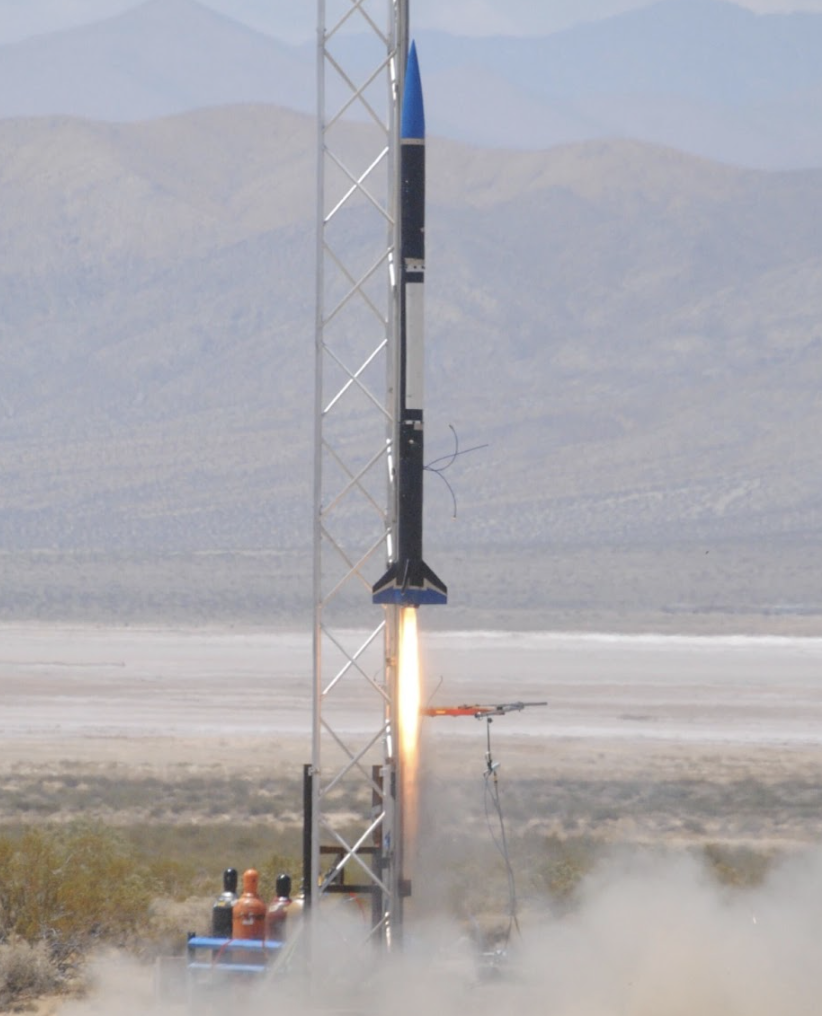Rocket Project at UCLA aims for new heights using innovation, collaboration
Prometheus, the hybrid team, integrating their rocket, gets ready to launch in the Mojave desert. (Courtesy of Caitlyn Hill)
By Patrick Woodham
June 8, 2025 7:54 p.m.
Rocket Project at UCLA spent hours across months building a fuel tank.
Project Ares, Rocket Project’s senior team, built a prototype tank with liquid oxidizer and fuel to test what pressures it could withstand, said Raj Sheth, a fourth-year chemistry student .
But the tank exploded much earlier than expected.
“That was a kick in the stomach because that was objectively the worst thing to happen to the club in a while,” Sheth said. “We bounced back from it, but that was very close to just calling the year and letting the rocket not get built at all. It was pretty bad.”
Rocket Project members design and engineer rockets to launch in the Mojave Desert for profit, sometimes reaching a height of over 20,000 feet, said James Loweth, a second-year aerospace engineering student.
The Dollar Per Foot competition in the Mojave Desert promises to pay Rocket Project $1 for each foot Ares reached an elevation for their participation. Loweth said that Project Ares planned to reach 40,000 feet this year – and its failure set the team back financially.
He added that the team has other sources of funds like the Undergraduate Students Association’s club contingency fund.
However, the team was able to rebuild quickly after a welder mended their tank, Sheth said.
Sheth, a propulsion design lead for the liquid team on Ares, said the club has become more innovative since he joined in his sophomore year. Ares won $24,000 from last year’s competition, which allowed them to design new industry standard regenerative engines that can be launched multiple times.
“Every single year we try to innovate and do something different than the year before that and try to reach a higher apogee,” Sheth said.
Sheth said that while the Rocket Project is mostly composed of engineers, students of all backgrounds can join and excel. The club focuses on giving its members the proper resources and understanding to participate, he added.
“Knowledge transfer is very important to this club,” he said. “It’s done in a way where it does not matter what your major is. You have the opportunity to learn whatever you need to know to build this rocket.”
UCLA Rocket Project also receives free components through sponsorship and funding according to the leads from companies such as Lockheed Martin and Northrop Grumman – the world’s largest weapons manufacturer and third largest defense company respectively, according to the New York Times and Defense News.
Emily Fee, a third-year materials engineering student, said that, while the companies may be seen as immoral by some for their involvement in weapon manufacturing and development, they should also be recognized for their cutting edge work.
“I don’t want to speak for other people, but a lot of what those companies do are very amazing and cutting edge,” Fee said. “I think the sentiment is more that we look up to the companies and – obviously – are super grateful and appreciative for what they can provide.”
She added that working at these companies is an individual choice and is often a logical next step for mechanical and aerospace engineers.
Loweth said the technical competency of Rocket Project has also increased over the past two years. Students on Ares and Prometheus, the project’s rookie team, are more ambitious than the year prior, he said, adding that their data collection and rocket parachute deployment system have both improved.

Fee, a project lead for Prometheus and advisorial head for the club, said her favorite parts of Rocket Project are the people and leading the building process. Fee added that mentoring younger recruits to the club has been a learning experience for her.
Sheth said the club offers a strong community.
“The bulk of the team is here until 3 or 4 a.m. most nights. Then we leave, and then we come back the next day right after classes,” Sheth said.
Fee also said that the true core of the Rocket Project is its members’ dedication to their goals.
“I’ve never met a group of people that is more hard working and genuinely passionate about rockets than the people in this club,” Fee said. “They don’t do it for the resume, they don’t do it for the internship – they do it because they’re genuinely interested in it.”
